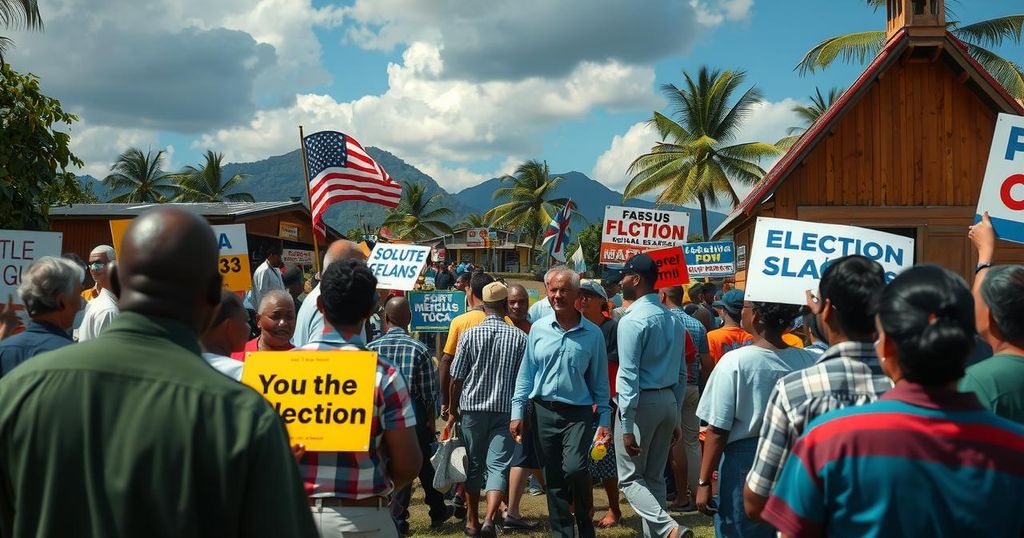Mauritius Parliamentary Elections: Ruling Party Seeks Second Term Amid Controversy

Mauritius held parliamentary elections on November 10, 2024, where Prime Minister Pravind Jugnauth’s ruling party seeks a second term amidst recent criticisms of a social media ban due to a wiretapping scandal. Over one million voters participated in the elections, which are critical for determining the future political landscape in this stable democracy in sub-Saharan Africa.
On November 10, 2024, the citizens of Mauritius participated in parliamentary elections with the ruling Militant Socialist Movement, led by Prime Minister Pravind Jugnauth, seeking to retain their majority for a second five-year term. The elections drew significant attention after recent governmental criticism related to a brief ban on social media prompted by a wiretapping scandal involving leaks of sensitive conversations among politicians and civic leaders. Despite the setback, the election process proceeded smoothly with over one million registered voters participating in this pivotal democratic exercise in one of Africa’s most stable democracies. Notable political figures, including Navin Ramgoolam of the Labour Party and Paul Berenger of the Mouvement Militant Mauricien, cast their votes in Port Louis. The elections were crucial, as they would determine control of the 62 parliamentary seats, with the party or coalition attaining a majority responsible for forming the government and appointing the prime minister. Mauritius, renowned for its successful economy largely driven by finance, tourism, and agriculture, is viewed as a beacon of stability and growth in sub-Saharan Africa. Having emerged from British colonial rule in 1968, this election marks the twelfth since independence, highlighting the nation’s commitment to democratic processes and governance. Mauritius is recognized for its high Human Development Index, ranking just behind Seychelles on factors such as education, life expectancy, and per capita income. The World Bank has lauded the nation’s significant economic achievements, labeling it a model of success within the region despite recent challenges, including setbacks faced in the tourism sector due to the COVID-19 pandemic. As the results of this election unfold, they will signal the electorate’s will concerning the political trajectory and leadership of this island nation.
Mauritius, located approximately 2,000 kilometers off the east coast of Africa, is recognized as one of the most stable democracies on the continent. The nation has undergone significant political evolution since gaining independence from British colonial rule in 1968, marking its twelfth parliamentary election in 2024. The economy of Mauritius has historically thrived based on sectors such as finance, tourism, and agriculture, earning it high rankings on various development metrics. Recent events, including a controversial ban on social media after a wiretapping scandal, have stirred public discourse, underpinning the importance of this election. The election will determine the composition of Parliament and potentially reshape immediate governmental priorities and policies.
In summary, the parliamentary elections in Mauritius mark a critical juncture for the nation’s democratic fabric, with Prime Minister Pravind Jugnauth aiming for a second term amid recent controversy. With over one million registered voters and significant participation from key political leaders, this election is poised to influence the future direction of a country lauded for its economic stability and growth. The outcomes will reveal the electorate’s confidence in the current administration and its ability to navigate notable challenges ahead.
Original Source: apnews.com







